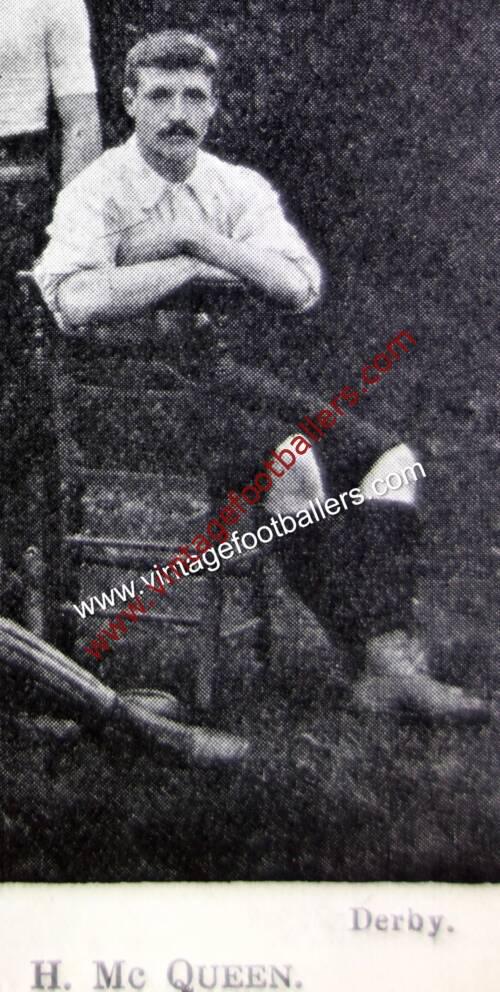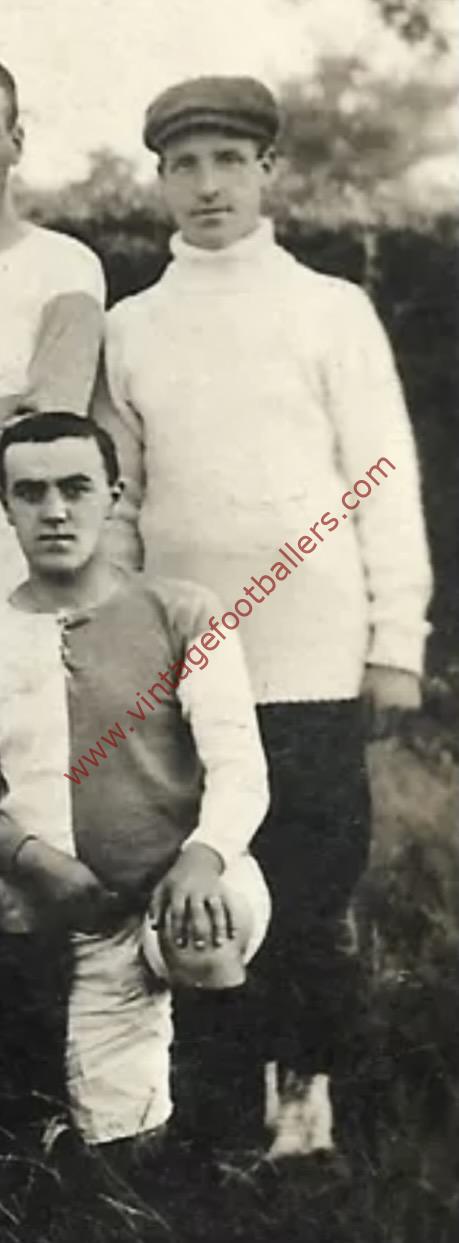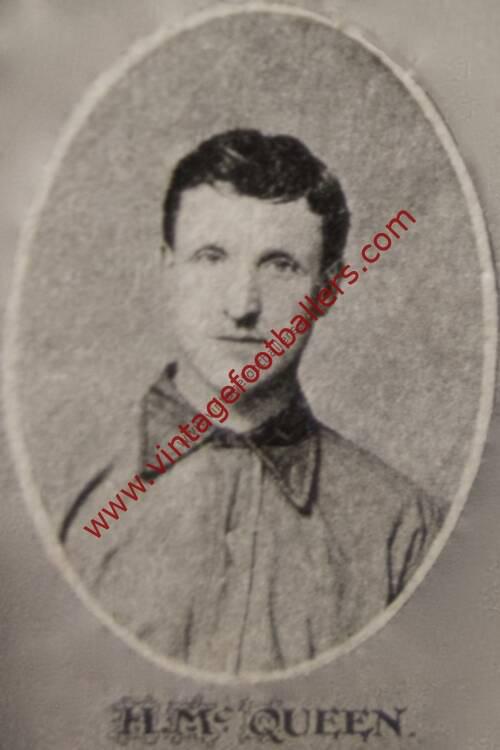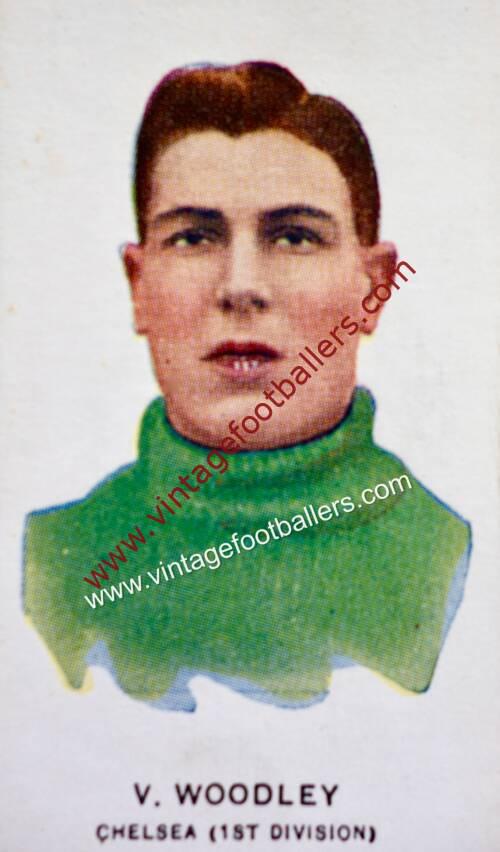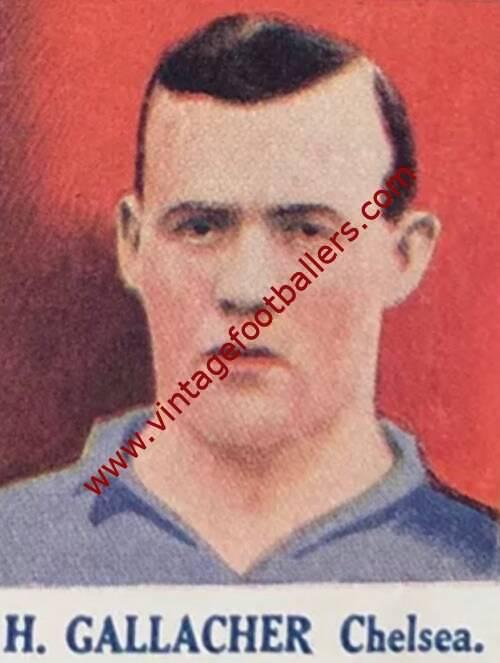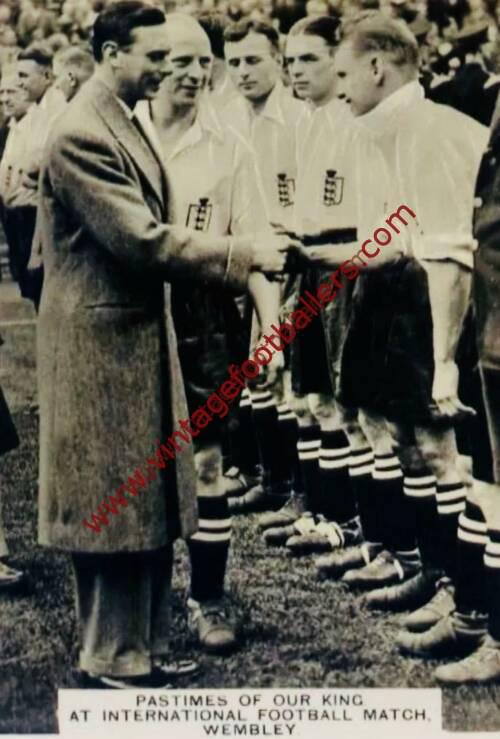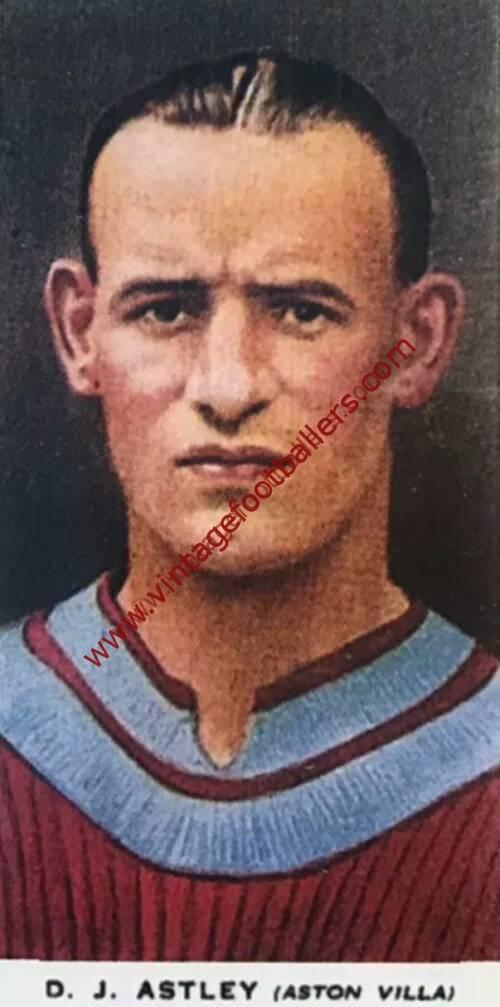Please choose your photo size from the drop down menu below.
If you wish your photo to be framed please select Yes.
Note: 16″x 20″not available in a frame.
Images can also be added to accessories. To order please follow these links
£8.95 – £49.95
Please choose your photo size from the drop down menu below.
If you wish your photo to be framed please select Yes.
Note: 16″x 20″not available in a frame.
Images can also be added to accessories. To order please follow these links
Harthill, Lanarkshire born outside left Hugh McQueen played football for West Benhar and Bo’ness before becoming a professional footballer at Leith Athletic in 1890. Hugh arrived at newly formed Lancashire League club Liverpool from Leith Athletic, along with his older brother of four years, Matt McQueen, in October 1892. Like his brother, Hugh was a left-winger whose greatest assets were his speed and pinpoint crosses. Only one month after his arrival to Liverpool, Hugh, as well as Matt, missed the 2-0 win over Rossendale in the Lancashire League as Hugh had the previous day got married to Mary Jane Ross in Edinburgh. They had met at a dancing class where Hugh and his teammates used to go to help strengthen their leg muscles. On the marriage certificate Hugh is listed as both a hotel waiter and a professional footballer. Liverpool finished the season as Lancashire League Champions and gained election to the Football League.
He made his Football League debut at Middlesbrough Ironopolis in Liverpool’s first ever League game in September 1893, and only missed one match as the club remained unbeaten throughout its inaugural Football League campaign in 1893-94, winning the Second Division Championship. He nearly lost his life when he dived off a springboard at Southport baths where the team was relaxing on 27th April 1894, the day before the vital Test match against Newton Heath (Manchester United) which would determine if Liverpool would be promoted. He was hauled out of the water, admitting later that he couldn’t swim! Liverpool, with McQueen in the side, were promoted after a 2-0 win but struggled to cope with life in the First Division and were immediately relegated. McQueen then left Anfield for Derby County in June 1895, wishing to remain in the top flight, after 18 goals in 61 appearances.
Derby had just escaped relegation from First Division, but greatly improved during McQueen’s six seasons at the club, finishing League runners-up in 1895-96 and third in 1896-97. Derby were also a great cup team, reaching the FA Cup semi-finals twice in 1896 and 1897 and losing the FA Cup Final in 1898 and 1899 to Nottingham Forest and Sheffield United respectively. McQueen won a gold medal for being the best player on the losing side in the 1898 Final, a small consolation for missing out on the big prize. McQueen played 168 games and scored 22 goals from 1895 to 1901 during his time at Derby County. He then joined Southern League Queen’s Park Rangers for the 1901-02 season, scoring 9 goals in 26 appearances during their inaugural season in the Southern League, before returning to Football League action with Gainsborough Trinity in June 1902, for whom he scored 6 goals in 33 appearances during 1902-03.
He returned to the Southern League with Fulham in 1903, spending a single season at Craven Cottage before returning to Scotland in 1904 to join Kilmarnock, where he played at least 7 times for Killie in the first half of 1904-05. He soon moved on to Hibernian later the same year where he played once against Morton in January 1905 before returning south later in 1905 to join Southern League Norwich City, becoming player-coach. At Norwich he both finished his playing career, actually playing his last-ever game a month later when he featured in a 6-1 defeat to Rotherham in the United League on 15th March 1909. He had officially hung up his boots by that time as he was 41 years old but was called into Canaries’ line-up to make up the numbers. On 6th February 1909 Hugh returned to Anfield to a standing ovation as Norwich’s trainer when the Canaries managed a famous 3-2 victory in the FA Cup.
His son Hugh Jr. moved to Canada and served with the Canadian Overseas Expeditionary Force in the First World War and was tragically killed in action in France on 15th September 1916.
His older brother, Matt McQueen, played for Hearts, Leith, Liverpool and Scotland, and was later Liverpool’s manager in the 1920’s. While a player at Liverpool Matt is notable for having played in all 10 outfield positions and on a number of occasions as goalkeeper for the club!!
| Weight | N/A |
|---|
